Zimbabwe
Zimbawe’s police force has established a special task force to secure the forthcoming general elections, pledging to expeditiously and professionally deal with all cases of political violence reported before, during and after the elections.
The political parties’ internal polls, including the forthcoming harmonised elections, are dealt with expeditiously and professionally.
The Senior Assistant Commissioner of Police, Charity Charamba said the police force had reviewed areas where it had fallen short in previous elections.
“The police are no longer doing business as before, but in this new trajectory, police officers have been given guidance and there is a vision to deal with all cases irrespective of your political party, your stature in life, your colour or your gender,” Charamba said.
The police force has in the past been accused of committing gross human rights abuses in its zeal to protect the interests of the government in power.
Critics of former president Robert Mugabe repeatedly accused the police and security forces of keeping him in power, by harassing the opposition.
Mugabe has since been removed from office through a de facto military coup in November last year. His successor, President Emmerson Mnangagwa has promised free and fair elections, as he strives to reassure Zimbabweans and the international community of a change in tactics by the ruling ZANU – PF party.
Senior Assistant Commissioner Erasmus Makodza, who has been appointed Commander 2018 ZRP Harmonised Elections, said the police would do everything in their power to ensure the forthcoming national elections were violence-free.
“We are saying no to political violence. It does not pay anyone anything. We do not want political violence. We are going to put into practice what I have just been talking about. We are going to make sure that there is no violence. We want a free, credible and transparent election,” said Makodza.
Mnangagwa to accept opposition victory
Zimbabwe’s Foreign Affairs and International Trade Minister Sibusiso Moyo on Monday told investors at the London-based think-thank, Chatham House Africa, that Mnangagwa will step down if he loses the forthcoming elections to an opposition candidate.
“If an opposition candidate is victorious in the elections, President Mnangagwa is prepared to accept. Political contestation must not override national interests. People can come and go, but the State is more important,” Moyo was quoted as saying.
Mnangagwa himself has often indicated his willingness to step down if he loses the elections.
The police also told journalists they are working with the judiciary and other stakeholders to set up special courts throughout the country to speedily deal with politically motivated crimes.
The country’s electoral laws specifically prohibit:
Inflicting or threatening to inflict bodily injury upon a person.
Abducting a person or detaining a person against his or her will.
The law also makes it illegal to cause or to threaten to cause unlawful damage to a person’s property.
Withholding or threatening to withhold from any person assistance or benefit to which that person is legally entitled.
Compelling or attempting to compel a person or persons to attend or participate in any political event.
Preventing or obstructing a political party or candidate from campaigning in any election, is deemed illegal.



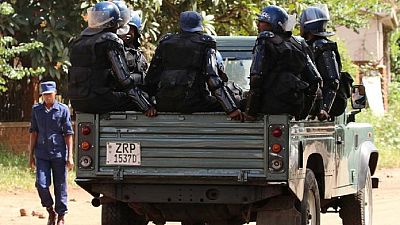

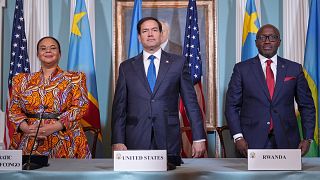
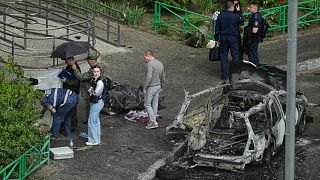

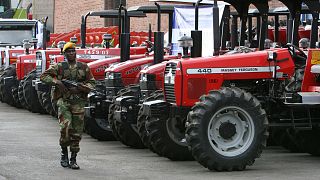
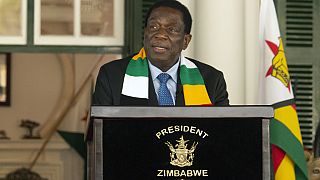
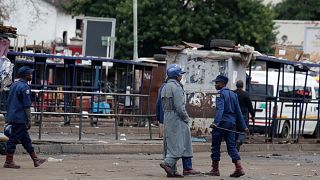


Go to video
Police clash with students over controversial play at Kenya’s drama competition
Go to video
Haitians demand protection from surging gang violence
Go to video
Pics of the day: April 01, 2025
01:59
‘Rassemblement des Bâtisseurs’ gains support ahead of Gabon election
Go to video
Zimbabwe President removes army chief amid coup speculation
Go to video
German authorities target Eritrean opposition group in nationwide raids